
Remote Work Visas Caribbean Islands Comparison: Top 7 Islands Revealed for Hassle-Free Digital Nomad Living
Ever found yourself daydreaming about working from a Caribbean island, with warm sand under your feet and turquoise water just a glance away? You’re definitely not the only one. Remote work visas in the Caribbean are making that dream a reality for so many, mixing work and paradise in ways that, honestly, I never thought would become so accessible.
A bunch of Caribbean islands now roll out special digital nomad visas, giving you the green light to stay legally for months while keeping your job remote. Some places even toss in tax breaks or make the application process refreshingly simple.
But let’s be real—not all remote work visas are created equal. Picking the right island can save you a lot of money, paperwork headaches, and stress. Let’s dig in together, and I’ll share the key differences, the oddball rules, and a few things I wish I’d known before I packed my laptop and sunscreen.
Table of Contents
- Key Takeaways
- Overview of Remote Work Visas in the Caribbean
- Understanding Digital Nomad Visas
- Types of Remote Work Visa Programs
- Eligibility Criteria for Remote Workers
- Caribbean Islands Offering Remote Work Visas
- Barbados Welcome Stamp Program
- Bahamas Extended Access Travel Stay (BEATS)
- Work From Bermuda Certificate
- Cayman Islands Global Citizen Concierge Program
- More Caribbean Nations with Digital Nomad Visas
- @HOME in Curaçao
- Dominica Nomad Digital Residence
- Anguilla Residency Program
- Aruba One Happy Workation
- Unique Features of Caribbean Remote Work Visas
- Visa Duration and Extension Options
- Family Member Inclusion
- Services and Support for Digital Professionals
- Application Processes and Requirements
- Proof of Employment
- Application Fee and Costs
- Clean Criminal Record
- Financial Considerations and Tax Advantages
- Income Tax Policies
- Health Insurance Requirements
- Affordable vs. Luxury Living Options
- Work-Life Balance and Remote Work Infrastructure
- Coworking Spaces and Networking Opportunities
- Local Housing Options
- Internet and Digital Services
- Experiencing Life in Caribbean Expat Communities
- Cultural Immersion and Local Customs
- Engaging with Expat Community
- Remote Work–Friendly Caribbean Lifestyles
- Comparative Spotlight on Select Islands
- St. Lucia’s Nomad Potential
- Montserrat’s Remote Work Attractiveness
- Grenada’s Options for Digital Nomads
- Jamaica’s Remote Work Offerings
- Frequently Asked Questions
- Which Caribbean islands offer the most beneficial visa programs for digital nomads seeking long-term stays?
- What are the specific requirements and benefits of the Barbados Welcome Stamp for remote workers?
- How does the cost of living compare between Caribbean islands offering remote work visas?
- Can you explain the application process and associated fees for obtaining a digital nomad visa in countries like Aruba or Barbados?
- Are there any Caribbean islands with visa programs tailored to short-term remote workers or digital nomads?
- Which Caribbean island provides the most seamless integration for remote workers looking for a balance between work and tropical lifestyle?
- Book Your Dream Experience
- More Travel Guides
Key Takeaways
- Several Caribbean islands now offer remote work visas.
- Each island’s visa comes with its own perks and quirks.
- Picking the right spot can seriously level up your remote work setup.
Overview of Remote Work Visas in the Caribbean
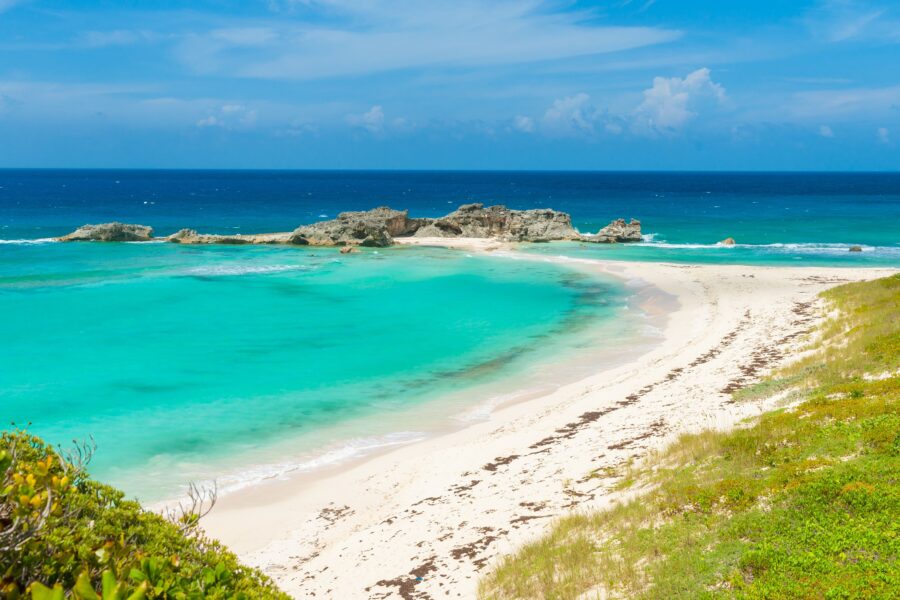
If you picture yourself working on a laptop, ocean breeze wafting in, toes buried in the sand—well, that’s not just a fantasy anymore. Caribbean islands have launched visa programs tailor-made for digital nomads and remote workers, so you can actually call paradise your office.
Understanding Digital Nomad Visas
Digital nomad visas target folks who work online and want to set up shop in a new country for a while. Unlike standard tourist visas, these programs let you stay longer and focus on your job, not just vacationing. Most Caribbean nations jumped on the digital nomad bandwagon around 2020, and the trend just exploded from there.
You don’t have to find a job locally. You keep your current gig and just do it surrounded by palm trees and sunshine. Some islands call these “remote work visas,” but whatever the label, the main point is to let non-residents legally live and work remotely for up to 18 months or, in some cases, even longer.
Honestly, the freedom these programs offer is hard to beat. Stable internet, a sense of community, and a laid-back vibe—plus, you skip the months of red tape you’d face in Europe or elsewhere.
Types of Remote Work Visa Programs
No two Caribbean islands are the same, and their remote work visas definitely reflect that. Each island brings its own flavor, perks, and sometimes, a few curveballs.
Here’s a quick peek at what’s out there:
| Island | Visa Length | Income Req. | Notable Feature |
|---|---|---|---|
| Barbados | Up to 12 months | High | Laid-back but lively |
| Antigua & Barbuda | Up to 2 years | Moderate to High | Family-friendly |
| Dominica | 18 months | $50,000+/yr | Eco-adventures everywhere |
| The Bahamas (BEATS) | Up to 3 years | Higher end | Tons of islands to explore |
| Aruba | 90 days | Varies | Easiest for quick stays |
| Curaçao | Up to 12 months | Moderate | Multicultural city life |
Names for these programs bounce around—“extended stay visa,” “digital nomad,” and so on. You’ll want to compare the fine print, because the little stuff can trip you up. Nothing kills the vibe like a paperwork surprise, right?
Eligibility Criteria for Remote Workers
You can’t just show up and expect a work visa to fall in your lap. Each country has its own checklist, but generally, you’ll need to:
- Be at least 18 (sometimes 21)
- Prove you’ve got remote work or your own online business
- Hit a yearly income minimum (ranges a lot—Dominica’s is $50,000, for example)
- Show you won’t take local jobs while you’re there
- Pass a background check and get health insurance
Most islands want to see bank statements or a letter from your employer, and you’ll usually do all of this online. Compared to, say, European work permits, it’s honestly a breeze. If you’re bringing family, double-check the rules—some islands love families, others not so much.
From my chats with other digital nomads, I’ve learned that preparation is everything. The application process can feel wildly different from island to island, so get into the details before you buy that plane ticket.
Caribbean Islands Offering Remote Work Visas
Several Caribbean islands now offer remote work visa programs, giving you a legit way to work where you’d rather vacation. Each spot has its own set of requirements and perks, so your choice really depends on your work style, your job, and what you want out of island life.
Barbados Welcome Stamp Program
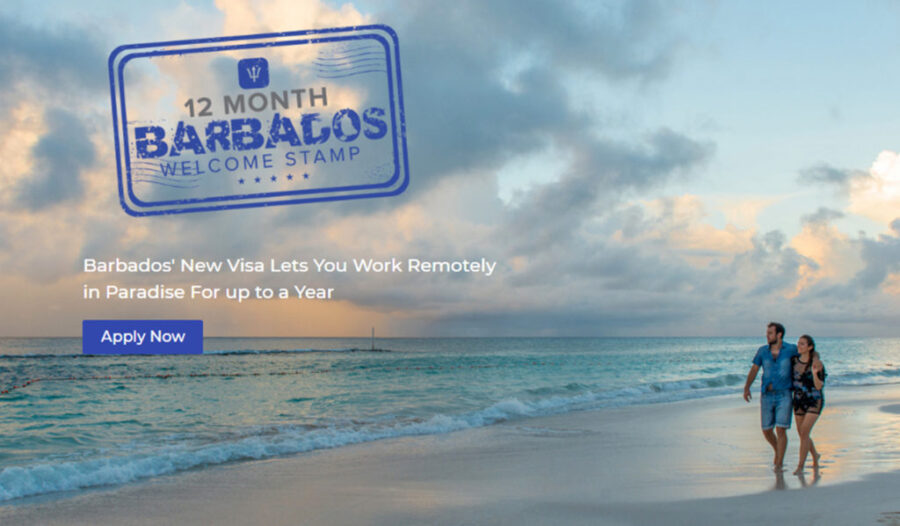
Barbados basically kicked off the Caribbean digital nomad trend with its Welcome Stamp program. You can live and work here for up to 12 months, and you don’t have to worry about visa runs.
You’ll need to show you make at least $50,000 USD a year and that your work is remote. The application is mostly online and, honestly, pretty straightforward. People I’ve met say Barbados keeps things as smooth as its sea breezes.
Heads up: the initial fee isn’t exactly pocket change—$2,000 USD for individuals or $3,000 for families. But you get gorgeous beaches, solid Wi-Fi, and a welcoming community of remote workers. Cost of living can sting a bit, especially compared to some other islands, but if your job pays well, the lifestyle here is pretty unbeatable.
| Requirement | Details |
|---|---|
| Minimum Income | $50,000 USD/year |
| Application Fee | $2,000 individual / $3,000 family |
| Validity | 12 months |
| Work Restrictions | No local employment allowed |
Bahamas Extended Access Travel Stay (BEATS)

If the Bahamas is calling your name, the BEATS visa might be your ticket. This program lets you work or study remotely on dozens of stunning islands for up to a year.
You fill out a quick online application, pay a $25 processing fee, and if you’re approved, it’s $1,000 for the main applicant and $500 for each dependent. Upfront, it’s less expensive than Barbados.
There’s no strict income minimum, but you do need to prove you can support yourself. Internet quality can be hit or miss depending on the island, so if you’re glued to Zoom, I’d stick with Nassau or Freeport. I’ve always found Bahamians to be genuinely friendly and helpful, which makes settling in way less intimidating.
Work From Bermuda Certificate
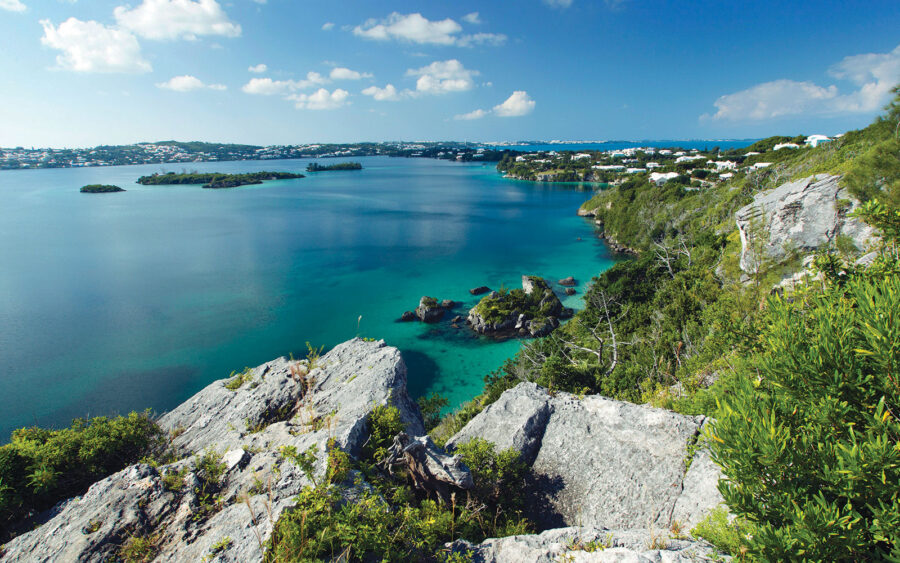
Bermuda, with its pink sand beaches and British flair, rolled out its “Work From Bermuda” certificate in 2020. You can work remotely for up to 12 months, as long as you don’t take a local job or do business locally.
The approval process is fast—in my experience, you can get the green light in about five business days. The fee is $263 per person, and while there’s no official income minimum, you’ll need to prove you’re employed remotely or run your own business. Bermuda is pricey. Groceries and rent can really surprise you if you’re coming from a cheaper country.
But there’s something special about Bermuda. Families can enroll in international schools, there are networking events for remote workers, and locals are genuinely welcoming. If you want somewhere quieter, St. George’s or Somerset are both great options.
Cayman Islands Global Citizen Concierge Program
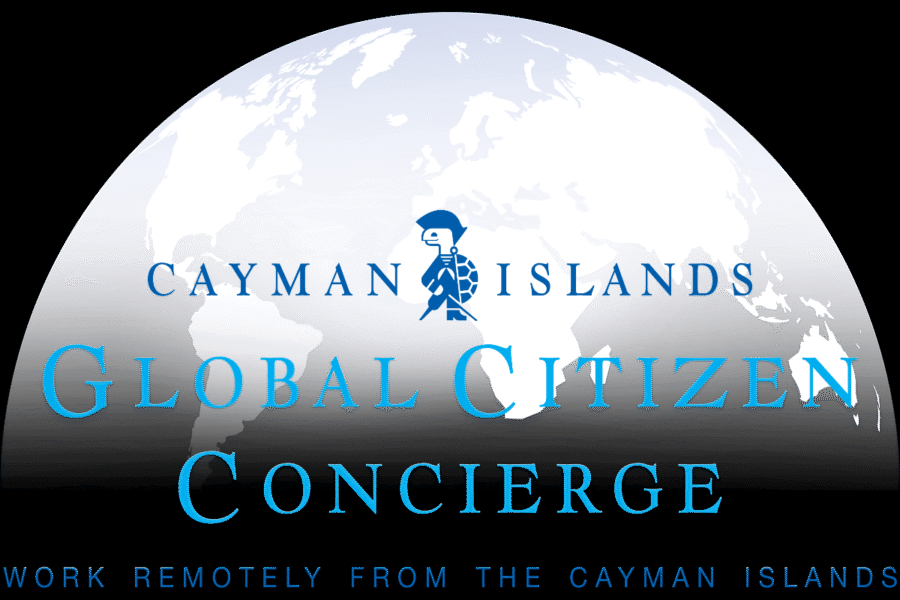
The Cayman Islands’ Global Citizen Concierge Program is a bit of a mouthful, but it’s a solid option for high earners. You can live and work here for up to two years, but you’ll need to show an annual income of at least $100,000 USD (it bumps up to $150,000 if you’re bringing a spouse, and $180,000 with dependents).
The application goes deep—background checks, proof of employment, bank references. The fee is $1,469 per person, plus $500 for each dependent. If you can clear those hurdles, you’ll get access to great infrastructure, top-notch safety, and some of the prettiest beaches around.
Life in the Caymans feels polished and business-like. Grand Cayman boasts excellent schools and healthcare, but you’ll pay a premium for both. If you want order and modern comforts, this is probably your best bet in the region.
More Caribbean Nations with Digital Nomad Visas
More and more island nations across the Caribbean are rolling out digital nomad visas, each with its own flavor—different requirements, stay lengths, and comforts for remote workers.
@HOME in Curaçao
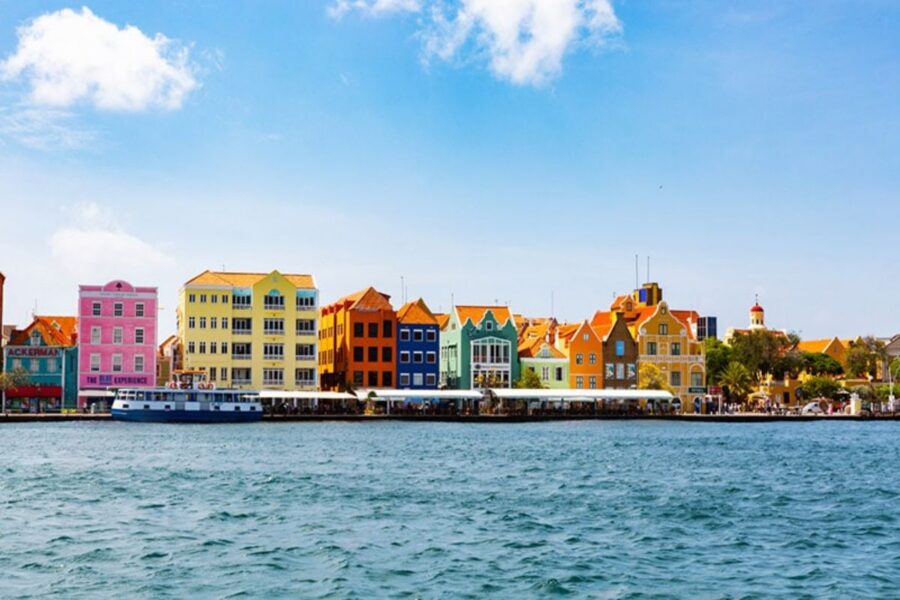
Curaçao’s @HOME program is a winner if you want a reliable base and vibrant island life. You can apply to stay for up to six months, and if you’re not ready to leave, you can renew. The government keeps things simple; you apply online and skip the usual red tape.
What I really like is that English is widely spoken, so you don’t need to worry about learning Dutch or Papiamentu. The island’s internet is also surprisingly stable, which isn’t always a given in the Caribbean.
The cost of living isn’t the lowest, but you get a good mix of modern amenities, lively local culture, and plenty of coworking spaces. You can work from breezy cafes in Willemstad or sneak away for a lunchtime swim.
Key points:
- Stay up to 6 months (renewable)
- Online application
- No local tax for most foreign income
- English widely spoken
Dominica Nomad Digital Residence
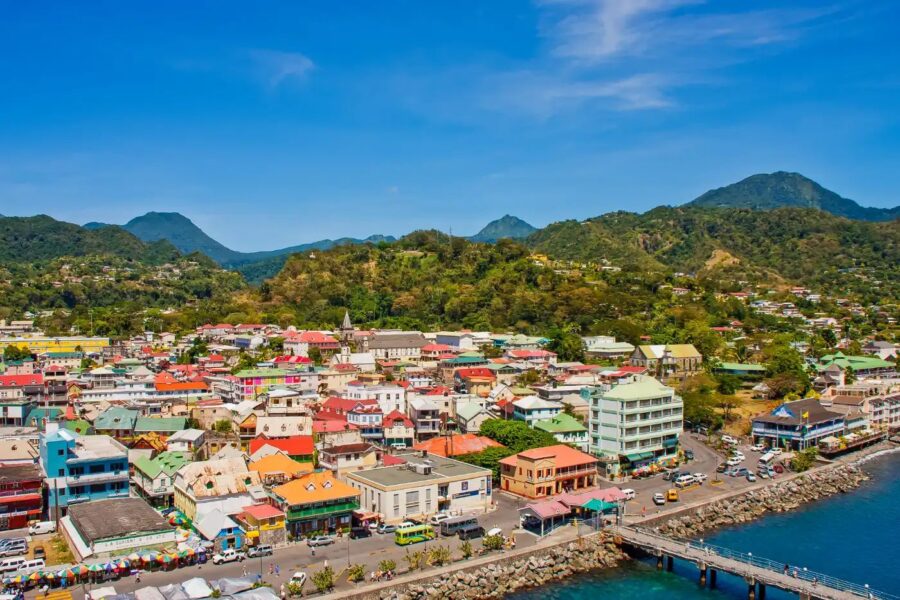
Dominica’s Nomad Digital Residence lets you live and work on this lush “Nature Island” for up to 18 months. The visa is flexible and only asks for proof of a steady remote income. The paperwork isn’t overwhelming—more than packing, but not a nightmare.
If you love the outdoors—think hiking waterfalls, rainforest treks—Dominica is honestly a dream. Internet isn’t lightning-fast everywhere, but it’s good enough for video calls and uploads.
People are friendly, but you won’t find a big expat scene yet. The pace is slow, so if you’re burned out by city life, this is a real breath of fresh air. I’m a fan of the local markets and food—lots of fresh produce and island flavor.
Quick facts:
- Visa period: up to 18 months
- Application fee required
- Proof of steady remote income needed
- Nature-focused, less developed tourism
Anguilla Residency Program

Anguilla might be tiny, but its Residency Program is a big deal for digital nomads who crave quiet beaches and laid-back days. The program lets you stay up to 12 months. Application happens mostly online, and they get back to you fast (wish more places did that).
The vibe is totally different from the busier islands—no big crowds or high-rises. It’s about long walks, reading on the sand, and chatting with locals at beach grills. If you value peace and quiet, Anguilla is a gem.
Groceries and rentals can be pricier than you’d expect, but you get real privacy and a sense of exclusivity. If you can budget a bit extra, it’s honestly stunning.
Standout features:
- Stay up to 1 year
- Quiet, uncrowded beaches
- Fast-track online application
- High cost, but exclusive feel
Aruba One Happy Workation
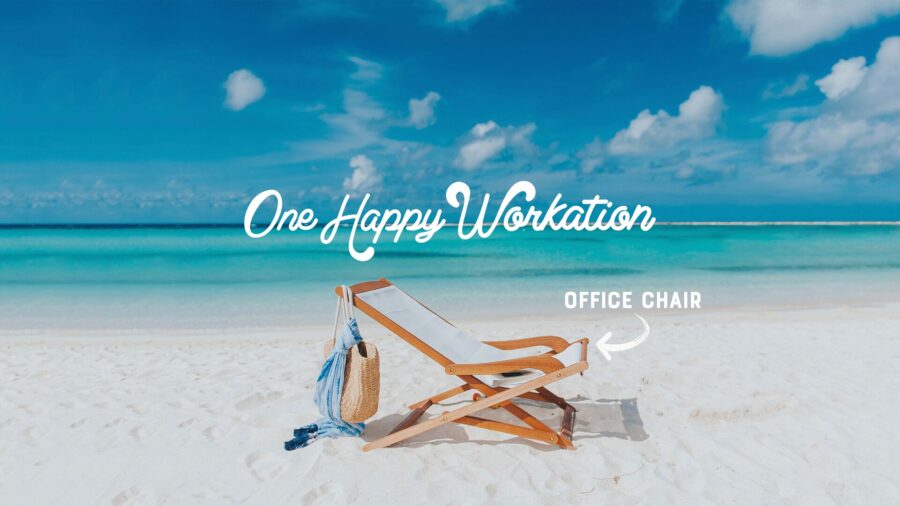
Aruba’s One Happy Workation isn’t a true visa—it’s more like a long-stay tourist plan. Still, you get to live and work on the island for up to 90 days.
You don’t have to apply ahead of time. Just book a stay at one of their listed hotels or rentals, and you’re good to go.
Honestly, Aruba feels incredibly tourist-friendly. The service stands out, Wi-Fi is reliable enough, and you’ll often find hotel deals that toss in gym passes or extra perks.
Some properties even set up daily workspaces or a business center just for remote workers. That’s a nice touch, especially if you want to separate work from play.
Three months isn’t a year, but if you’re itching for a change of scenery—think turquoise water and laid-back days—Aruba’s plan is refreshingly simple. Just know, those 90 days zip by before you know it.
I’ve chatted with plenty of folks who wished they could have stretched their stay.
Main points:
- Stay up to 90 days
- No advance visa required
- Must book listed accommodations
- Convenient for short-term remote work in a resort setting
Unique Features of Caribbean Remote Work Visas
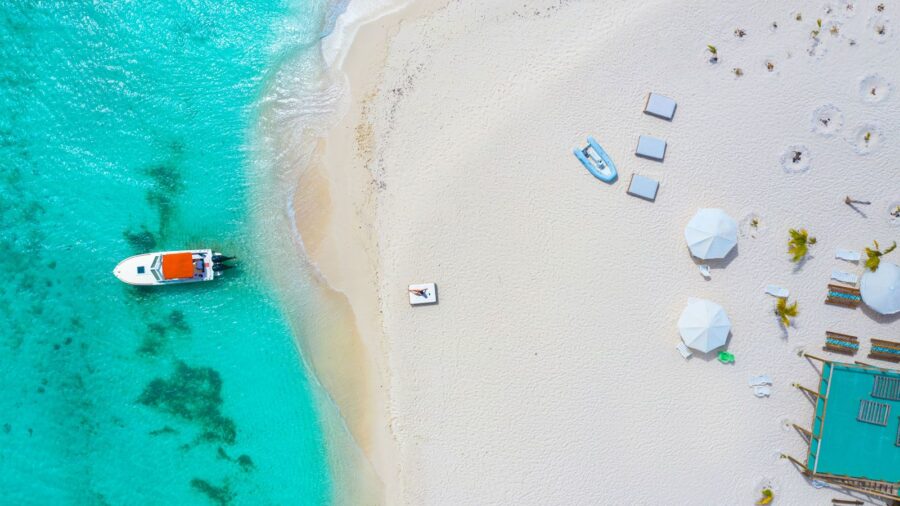
Picking a Caribbean remote work visa isn’t just about palm trees or rum punch. Each island runs its program a bit differently.
If you’re bringing family, planning a longer stay, or hunting for digital-friendly spaces, you’ll want to dig into the details. It’s worth the effort.
Visa Duration and Extension Options
Maybe you only want a quick escape, but after a few sunsets and some coconut water, you might crave more time. Most Caribbean remote work visas let you stay 1 to 2 years.
Barbados’ Welcome Stamp is valid for up to 12 months. Antigua & Barbuda? You can settle in for two years.
Extension policies actually vary a lot. Barbados makes renewal painless—just apply online, pay a fee, and show you’re still working remotely.
Other islands tack on more paperwork or limit you to a single stay. It pays to check the fine print before you fall in love with a spot.
The clock starts ticking the minute you land. In some places, you can pair your work visa with an initial vacation stay—Aruba’s 90-day window is a great way to test-drive island life.
Family Member Inclusion
Traveling solo isn’t for everyone. If you’re like me, you’d rather share the adventure with your partner or kids.
Most Caribbean work visas let you bring your family. The Cayman Islands’ Global Citizen Concierge, for example, lets you add your spouse and dependent kids (just expect some extra paperwork and fees).
Some islands keep it simple: one application, everyone’s covered. Others want a separate form for each person, especially minors.
If you’re a single parent or have a blended family, clarify who qualifies as a dependent—rules can surprise you.
Kids can usually enroll in local schools, and your partner gets to soak up island life too. But don’t expect spouses to work locally—most islands prohibit it, so remote work is the way to go for everyone.
Services and Support for Digital Professionals
Remote work is more than just Wi-Fi, right? You’ll want a real support system, and maybe a café with a decent latte.
Barbados and Antigua have stepped up for digital pros—think co-working spaces, networking events, and even government-backed support offices to help you settle in.
I’ve watched tech hubs and “digital nomad villages” pop up in places like the Cayman Islands. It’s easier than ever to find fellow remote workers.
Fast Wi-Fi is now the baseline, not a bonus. Some programs throw in perks like access to healthcare, business networks, or discounts at gyms and cafés.
Ask about these extras before you go. Don’t hesitate to reach out and get the real scoop—you’ll thank yourself once you arrive.
Application Processes and Requirements

Applying for a Caribbean remote work visa isn’t rocket science, but every island tweaks the process. Double-check requirements before you start.
Proof of Employment
Every digital nomad program in the Caribbean wants to see that you’re genuinely working remotely.
Some islands ask for an employment letter or contract. Barbados looks for a letter from your employer, or proof of business if you’re self-employed.
Antigua & Barbuda might request recent pay stubs or invoices. Sometimes, a bank statement helps prove you can support yourself.
The point? They want to know you won’t take local jobs.
Last year, I helped a friend apply for Aruba’s workation. They needed confirmation of employment, a statement about freelance gigs, and proof of ongoing income.
Be ready to explain what you do and who pays you—these details matter most.
Pro tip: Gather your documents before you start. Freelancers, list your clients. If you’ve got a full-time remote job, grab that HR letter now.
Application Fee and Costs
Application fees for Caribbean remote work visas are all over the map.
Barbados charges about $2,000 for individuals, while Montserrat asks just $500.
Some islands want payment up front; others let you pay after approval. Most fees are non-refundable, so check before you hit submit.
Here’s a quick look at some typical application fees:
| Island | Individual Fee | Family Fee |
|---|---|---|
| Barbados | $2,000 | $3,000 |
| Antigua & Barbuda | $1,500 | $2,000+ |
| Dominica | $800 | $1,200 |
| Montserrat | $500 | $750 |
Watch out for hidden costs. Health insurance is often required, and express processing can bump up the total. The sticker price rarely tells the whole story.
Clean Criminal Record
You’ll need to show you’ve kept out of trouble with the law. Most islands ask for a police certificate or background check from your home country.
Sometimes, you’ll need one from every country you’ve lived in the past five years.
Getting all those documents can take weeks, so start early.
Requirements are strict. Even minor infractions can cause trouble—I’ve heard of people being denied over old, minor issues.
The idea is to protect the local community. If your record’s clean, you’re golden.
Double-check which documents you need before applying, or you might face delays.
Some islands want originals, others accept scans. Both usually need to be recent (within six months). If you’re unsure, reach out to the consulate. That move has saved me from a headache or two.
Financial Considerations and Tax Advantages
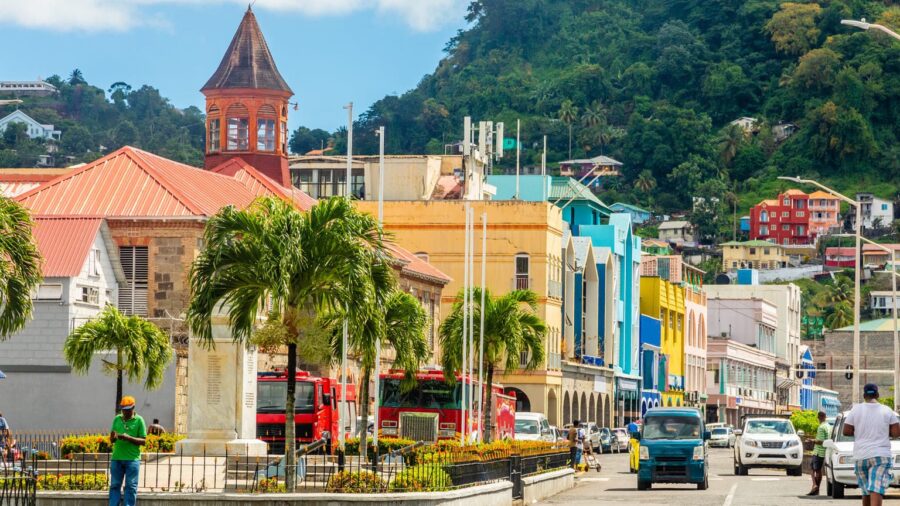
Choosing the right Caribbean island isn’t just about the view. Your budget, healthcare, and lifestyle options all shift depending on where you land—and what you actually want from your time abroad.
Income Tax Policies
Caribbean islands vary wildly on income tax for digital nomads, and this can make or break your monthly budget.
Barbados, Antigua, and Dominica offer remote work visas that usually come with tax perks. Often, you won’t pay local income tax on your foreign earnings. That’s a relief—nobody wants to get taxed twice.
Some islands do require a slice of your earnings as tax, or have strict rules for longer stays. Always check if your home country has a tax treaty with your chosen island.
Generally, these visas don’t let you work for local businesses, so taxes focus on outside income.
If you plan to travel often for work or visas, compare ways to fly cheap to top destinations and keep your tax paperwork organized. Chatting with a tax advisor before you move? Always a smart move.
Health Insurance Requirements
Most Caribbean remote work visas require valid health insurance before you arrive.
That’s not just red tape—healthcare can get expensive in tourist hotspots, and clinics on smaller islands might not handle emergencies or long-term care.
You’ll need to show proof of coverage, usually with a minimum limit. It’s for your own peace of mind, honestly.
If you’ve never bought international health insurance, don’t worry—it’s easier than it sounds. Specialized providers focus on travel and expat plans, so you can get insurance for travel or even switch plans mid-trip.
I’ve learned the hard way: nothing ruins paradise like a surprise medical bill. Take 20 minutes to sort this out now and avoid headaches later.
Affordable vs. Luxury Living Options
You’ll find everything from budget beach apartments under $1,000 a month to luxury villas that cost more than some houses back home.
Which fits you? That depends on your style, budget, and the island itself.
Barbados and the Cayman Islands usually run pricier, with upscale rentals and fancy grocery stores.
Dominica or Grenada offer affordable living—local markets, modest guesthouses, and less tourist markup.
If you want luxury, many islands deliver, but don’t assume everywhere does.
A tip for any budget: pack smart before you go. Good travel gear pays for itself and saves money on arrival.
You really can live comfortably in the Caribbean without draining your savings—or you can treat yourself if that’s your thing.
Work-Life Balance and Remote Work Infrastructure
Life on a Caribbean island sounds dreamy, and it can be, but remote work needs solid infrastructure. Good Wi-Fi, comfortable housing, and a sense of community help you get things done and still enjoy the island vibe.
Coworking Spaces and Networking Opportunities
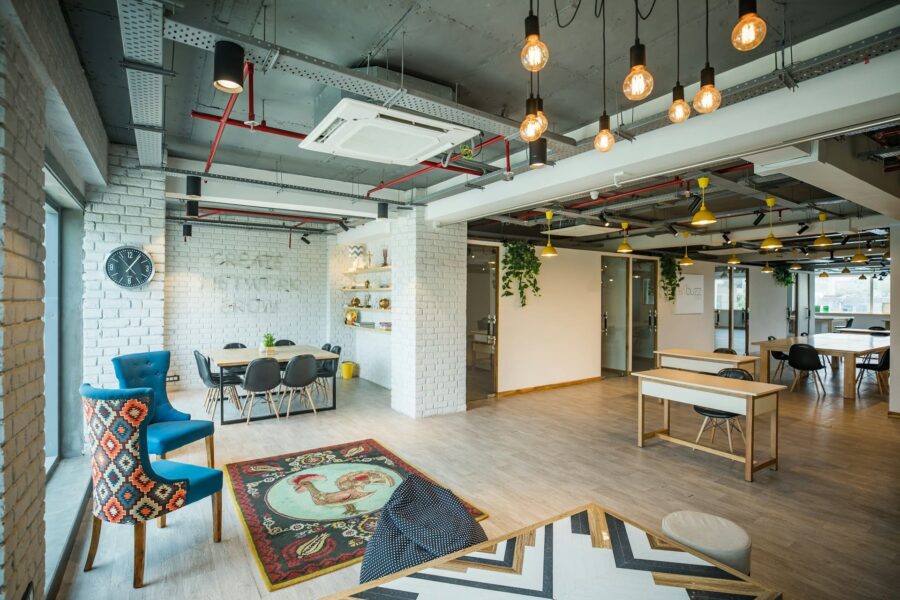
You might expect small islands to feel more like a vacation than a workplace, but places like Barbados and the Cayman Islands have embraced remote work.
Coworking spaces are popping up, especially near tourist hubs. They offer reliable internet and a chance to meet others on the same journey.
Sometimes, these spaces turn into mini-communities—one minute you’re swapping boat trip tips, the next you’re sharing client leads.
It’s a different energy from big cities. Things are quieter, but you’ll stumble onto events, happy hours, and networking mixers organized by people looking for a tribe away from home.
I recommend checking local event boards or apps like Meetup if you want more than just a desk.
You’ll see a casual dress code—nobody’s wearing a suit—but don’t let that fool you. People get stuff done, and I’ve met everyone from digital marketing pros to software developers chatting over coffee.
When you clock out, it’s easy to find local tours or fun activities through platforms if you want to unplug and explore.
Local Housing Options
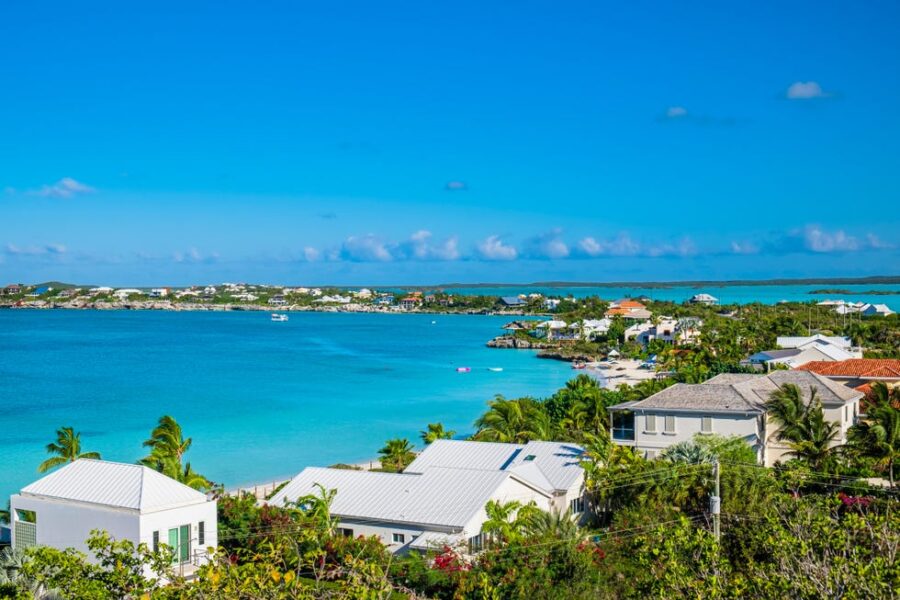
Finding a place to live as a remote worker in the Caribbean isn’t like booking a quick vacation. You’ll probably want something a bit more comfortable for the long haul—a proper kitchen, a decent workspace, and AC that actually works when the sun’s relentless.
Many islands have rental markets that really do cater to digital nomads. You’ll spot plenty of furnished apartments and condos near the water, but don’t forget to double-check the details, especially WiFi speed and whether there’s backup power. Caribbean storms like to knock things out now and then.
I always say: read reviews from other nomads before you sign on the dotted line. Short-term rentals—think 1–6 months—hit that sweet spot between flexibility and feeling settled.
If your budget’s tight, look beyond the main beaches. You can often find cheaper spots just a scooter ride away from the action.
When you’re ready to book, stick with sites other remote workers use. I’ve landed some of my favorite stays through reliable accommodation listings, where you can compare prices and real feedback without too much hassle.
Internet and Digital Services
Let’s be honest—those jaw-dropping sunsets won’t pay your bills, so internet is king. The upside: islands like Cayman, Barbados, and Aruba have put real effort into their digital infrastructure.
In most urban or lively coastal spots, you’ll find fast, stable connections good enough for Zoom, uploads, and whatever else you need. Head too far off the beaten path, though, and speeds can get iffy. Always ask your host or landlord before you show up—seriously, it can save you a headache.
SIM cards are easy to pick up, and local telecoms usually offer flexible data packages. I’d grab a local SIM as a backup, especially during hurricane season when things get a bit dicey. More than once, I’ve camped out in a coworking hub for hours, riding out a storm thanks to their backup generators.
You’ll find print shops, business centers, and even coffee shops doubling as digital service points, which is a lifesaver if you need to scan something or find a quiet call spot. Scope out the nearest internet options before you commit to a neighborhood.
If you’re itching for a break, check out excursions and tours available locally—some even have decent WiFi, so you don’t have to fully unplug unless you want to.
Experiencing Life in Caribbean Expat Communities

Caribbean islands aren’t just about sun and beaches—they’re a gateway to local culture and vibrant expat scenes. Every island has its own flavor, and honestly, that’s half the fun.
Cultural Immersion and Local Customs
If you move to the Caribbean, you’ll quickly notice how much locals value relaxed conversation. In Barbados, it’s totally normal to get a cheerful “Good morning!” from strangers.
Food’s a huge part of life here, and you’ll be nudged (or outright invited) to try local dishes like jerk chicken in Jamaica or saltfish in Saint Lucia. Once you try them, you might just forget about your old favorites. Expect to get swept up in a festival or two—Carnival is wild, but even small gatherings have their own magic.
Just a heads up: “island time” is real. Businesses open late, close midday, or just go at their own pace. Patience pays off here.
Respect goes a long way. Don’t poke fun at dialects or push your own customs, and you’ll usually find locals happy to share their stories or show you something new.
Engaging with Expat Community
Making friends in a new country isn’t always easy, but Caribbean expat groups make it way less awkward. In places like Antigua or the Bahamas, you’ll stumble into weekly meet-ups at cafes or beach bars—sometimes it feels like everyone’s just a friend you haven’t met yet.
You might find yourself at Friday fish fries or joining a pickup beach volleyball game. I’ll never forget my first month on Grenada—a stranger invited me sailing just because they saw me juggling groceries. The camaraderie here is genuine.
Most islands have Facebook groups or WhatsApp chats where newbies swap tips on everything from apartments to where to find the best mangoes. If you’re shy, don’t stress—people here are used to fresh faces. Just show up, say hi, and before long, you’ll have your own buzzing group chat.
Remote Work–Friendly Caribbean Lifestyles
Living and working remotely in the Caribbean isn’t just a daydream—they’ve actually set it up to work for you. Islands like Barbados and Dominica have rolled out legit “remote work visas,” so you can stay for a year (sometimes longer) without drowning in paperwork.
Work-life balance here comes pretty naturally. Fast Wi-Fi isn’t everywhere, but you’ll always find pockets perfect for video calls—usually in coworking spaces or expat-run cafés. After work, you’re at the beach with your feet in the sand or unwinding with new friends. Long lunch breaks and afternoon swims are just part of the rhythm.
Here’s a quick look at the work-life perks on some popular islands:
| Island | Visa Length | Notable Lifestyle Perk |
|---|---|---|
| Barbados | 12 months | Walkable beaches, lively weekend markets |
| Dominica | 18 months | Lush hiking trails, calm and quiet villages |
| Curaçao | 6+ months | Dutch-Caribbean culture, colorful city life |
Need a reminder to log off? Just glance outside—nature’s always calling. The blend of laid-back living and a supportive community makes it not just doable, but honestly, pretty rewarding.
Comparative Spotlight on Select Islands
If you’re eyeing the Caribbean for remote work, there’s way more to consider than just sunshine and beaches. Visa rules, day-to-day life, and internet quality can seriously shape your experience.
St. Lucia’s Nomad Potential
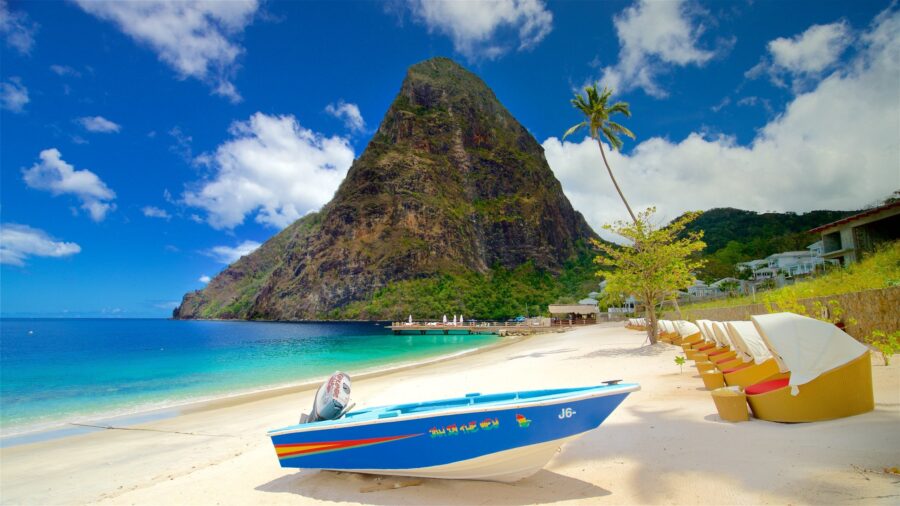
St. Lucia feels like an under-the-radar gem for remote workers. You get mountain views, honest island life, and a government that’s been toying with the idea of a remote work visa. It’s not official yet, but the buzz is growing. If you like getting in early, keep an eye on this one.
Daily life here actually feels balanced. I’ll never forget wandering a St. Lucian grocery store, spotting both European and Caribbean ingredients, and realizing you can cook just about anything. You’re not cut off from modern basics or good Wi-Fi, especially around Rodney Bay or Castries.
Costs stay friendly if you’re willing to live among locals. You’ll find neighborhoods where your budget goes further. And with English everywhere, you won’t have to play charades at the market—unless you’re in the mood.
Montserrat’s Remote Work Attractiveness
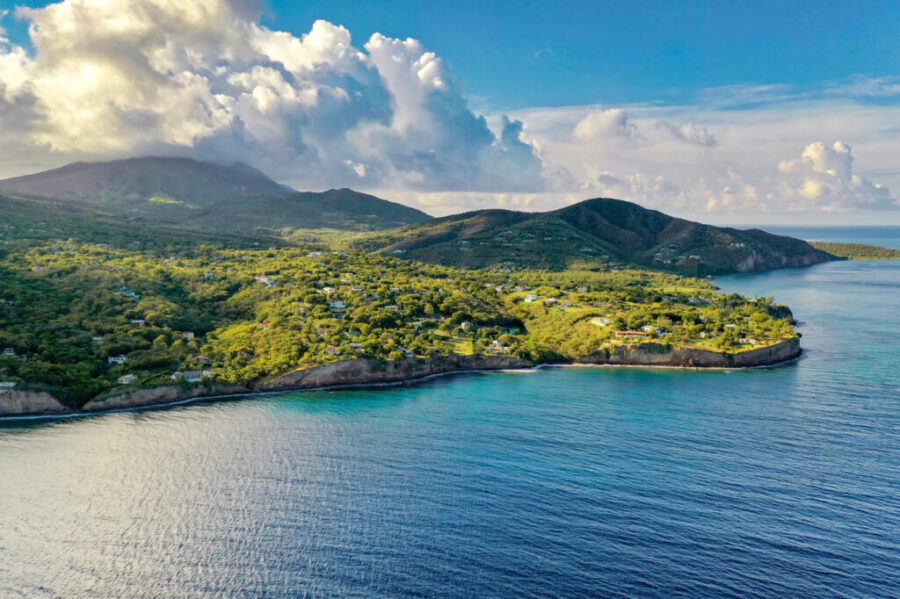
Montserrat isn’t the easiest island to reach, but if you crave quiet, safe corners and a real sense of community, it pays off. Their remote work program—the Montserrat Remote Worker Stamp—is simple and lets you stay up to 12 months. You handle the whole thing online.
Life moves slower here. On my first visit, a local actually stopped his car just to share hiking tips. The volcano hit in the ’90s, but the north side’s been rebuilt and feels tight-knit. Double-check that your rental has solid internet, but most expat-friendly places come equipped these days.
Groceries and utilities can cost more since most things are imported. Still, you’re paying for peace and those rolling green hills—and you’ll know your neighbors by name in no time. If you want Caribbean beauty without the crowds, Montserrat is a sleeper pick.
Grenada’s Options for Digital Nomads
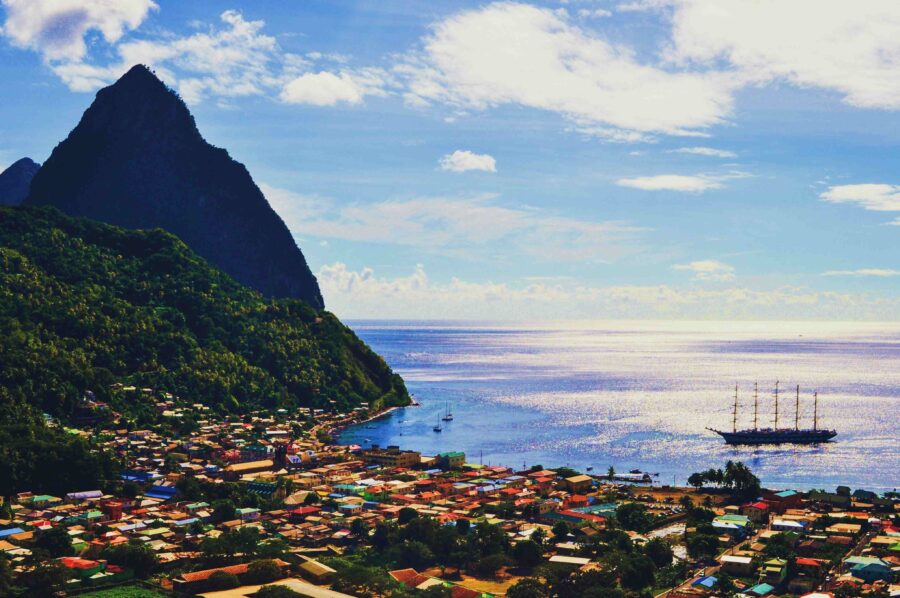
Grenada steps up with its Digital Nomad Visa, covering remote workers and their families. What really stands out is how much they focus on your comfort. Schooling options exist, and health care is reasonably solid. You can settle in without sweating the basics.
Grenada offers real fiber internet in many rentals (I’ve worked from the south coast with zero drops—absolute bliss). The “Spice Island” nickname isn’t just marketing—the scent of nutmeg or cinnamon sneaks up on you if you live outside St. George’s.
A lot of long-term visitors settle in Lance Aux Epines or Grand Anse, mixing with friendly locals and international students. If you like hiking or a lunchtime swim, Grenada delivers. Just be prepared for August—everything slows down, even the traffic.
Jamaica’s Remote Work Offerings
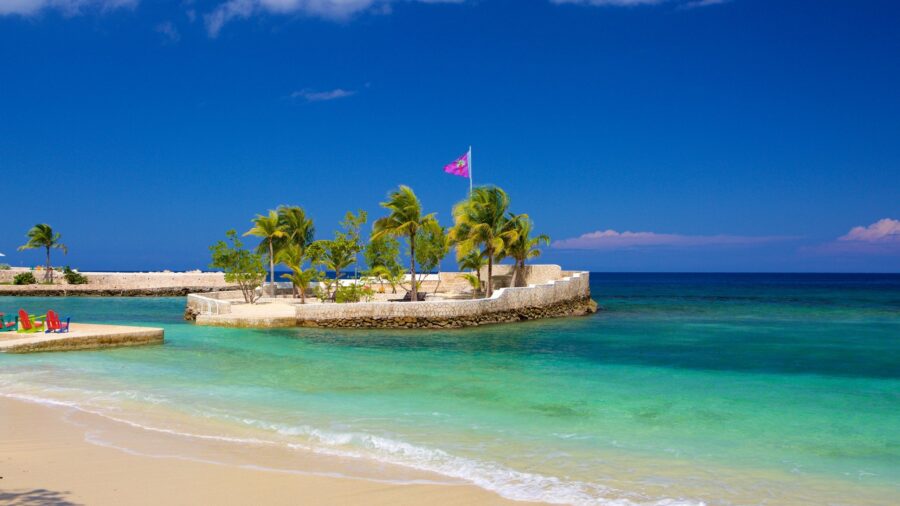
Jamaica is big, lively, and never boring. The “Jamaica JAM-ICE” remote work program gets a lot of buzz, and it’s easy to see why—visa processing is pretty quick and the requirements don’t trip up most applicants.
Kingston and Montego Bay both have solid coworking spaces and plenty of cafes with decent Wi-Fi. If you like variety, Jamaica’s got it. One day you’re in a cool cafe with reggae in the background, the next you’re working beachside.
English is everywhere, and locals are used to all types of visitors, which makes settling in smoother. Just remember: some areas are pricier and more touristy, so you’ll get better value renting just outside the main hubs.
Crime can be an issue in certain neighborhoods, so do your homework before choosing a spot. With a bit of planning, though, Jamaica offers a real mix of energy, culture, and practical infrastructure for remote work.
Frequently Asked Questions
Every island’s remote work visa has its quirks, and the rules can change before you even finish packing. Here are the questions I get asked the most by readers eyeing the Caribbean for work.
Which Caribbean islands offer the most beneficial visa programs for digital nomads seeking long-term stays?
Some islands practically roll out the red carpet for long-term nomads. Barbados, Antigua & Barbuda, and Dominica jump out—their digital nomad visas stretch a year or more, and renewals are often on the table if you’re loving island life.
Aruba, Anguilla, and St. Lucia have similar programs, but the perks vary. I’ve noticed Barbados and Antigua are especially good about including families and allowing flexible work.
What are the specific requirements and benefits of the Barbados Welcome Stamp for remote workers?
The Barbados Welcome Stamp is probably the simplest digital nomad visa in the region. You’ll need to show you make at least $50,000 a year (which isn’t always as scary as it sounds if you’re freelancing or consulting).
Once you’re approved, you can live and work in Barbados for up to a year, and bring your spouse and kids along. There’s no local income tax on your overseas earnings, and the whole process is online—I did mine poolside, Wi-Fi willing.
How does the cost of living compare between Caribbean islands offering remote work visas?
It really depends. Barbados is usually pricier, especially for imports and beachfront rent, but you can find deals if you shop local or live a bit inland.
Dominica and Grenada are a bit easier on the wallet, at least for groceries and simple living. Always budget extra for electricity and good Wi-Fi, though—that’s where costs can sneak up on you.
Can you explain the application process and associated fees for obtaining a digital nomad visa in countries like Aruba or Barbados?
For the Barbados Welcome Stamp, the process is digital and pretty speedy. Fill out an online application, upload proof of income and passport copies, and pay the fee (last I checked, it was around $2,000 for individuals, a bit more for families).
Aruba’s One Happy Workation isn’t exactly a visa, but more a special permit for long stays—mainly for US nationals. You usually book through partner hotels or villas, and fees depend on your accommodation and length of stay.
Are there any Caribbean islands with visa programs tailored to short-term remote workers or digital nomads?
A couple of islands, like Aruba and St. Lucia, have started rolling out options for short-term digital nomads. Aruba’s program works well if you want to stay up to three months, and honestly, they throw in some nice perks—think discounts on long-stay accommodations and even the occasional local experience.
St. Lucia’s experimenting with shorter nomad stays too, but their requirements seem to change on a whim. You’ll want to double-check the latest rules before you book anything. I learned the hard way once and ended up wrangling paperwork for a week at a beachside café (not the worst office, but still).
Which Caribbean island provides the most seamless integration for remote workers looking for a balance between work and tropical lifestyle?
Honestly, I keep coming back to Barbados. The island feels genuinely set up for remote workers—coworking spaces actually exist, and you’ll find decent Wi-Fi in most neighborhoods.
There’s a lively expat community, too, which means you’re never far from a friendly face or someone to grab a drink with after hours.
But maybe you’re after something a bit less obvious? Dominica calls out to folks who want quiet, wild beauty, and a slower rhythm.
Sure, the infrastructure’s not as polished, and sometimes the internet lags behind, but if you’re the type who’d rather swap an afternoon Zoom call for a hidden waterfall hike, this place just might be your paradise.
I’d say, weigh what matters most—do you want easy networking and urban comforts, or are you craving real escape and inspiration from nature?

